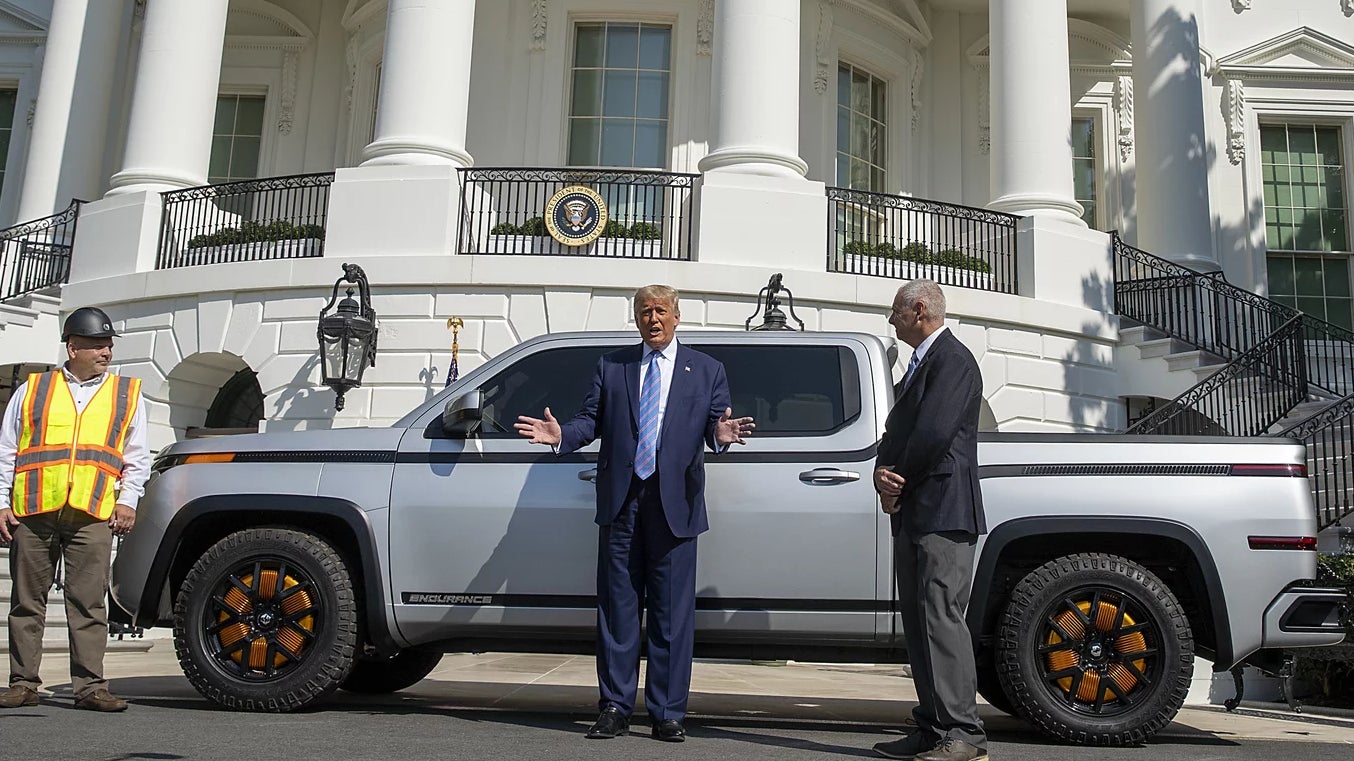Donald Trump is talking tough on electric car sales
"You won't be able to sell those cars," Trump says

Suggested Reading
Former United States President Donald J. Trump, currently facing 34 felony counts in criminal court, is campaigning for re-election this fall by taking shots at the increasingly popular electric car industry. Trump has already called for oil and gas industry executives to donate significant campaign funds in exchange for a reversal of Biden administration climate policies. If elected this November, Trump would roll back tailpipe emissions targets and dramatically slash EV tax credits. These policies may prove unpopular even among Republican voters, as electric vehicle production has spurred job growth and investment in southern states.
Related Content
Jalopnik wishes to clarify that, while Trump has made plenty of anti-EV comments in the past this specific comment reported by the NYT can be interpreted as solely directed at the sale of Chinese EVs built in Mexico for the U.S. market.
The automotive landscape is a far different place than it was in 2016 when Trump gained the presidency. Despite his best efforts, the EV market has grown significantly in the last eight years. Just 159,139 electric vehicles were sold in the U.S. in 2016, and that number is expected to exceed 1.5 million (or 10 percent of U.S. new car sales) in 2024. Even if Donald Trump were to be elected and hit the brakes on EV tax credits, the market may already be at a tipping point of growth. The electric car market has jumped the chasm between early adopters and mainstream consumers. Analysts predict widespread EV adoption will continue to develop regardless of Donald Trump’s actions, though perhaps at a reduced pace.
William Clay Ford Jr., executive chair of Ford Motor, told the New York Times: “Our time frame as a company, our planning time frame, is a lot longer than election cycles,” Mr. Ford said at an event organized by the Detroit Free Press last month. “When we’re whipsawed back and forth by politicians that becomes really difficult for us.”
Investment in U.S. manufacturing spurred by President Joe Biden’s Inflation Reduction Act will continue apace even with a second term for Donald Trump. Hyundai, for example, is investing $13 billion on electric vehicle production in Georgia, a state Donald Trump narrowly lost by 12,000 votes in 2020. By threatening the livelihoods of blue collar American workers, Trump may be doing more harm than good for his case in these manufacturing-reliant states.
With billions of investment on the books from automakers, charging companies, dealership networks, and advertising, it seems unlikely that Donald Trump can stop the rolling bolder that is the EV market. Republican strongholds Texas and Florida are increasingly adopting electric vehicles as their chosen mode of transport, trailing only California in terms of EV registrations. Electric vehicles seem to be equally popular among Republican and Democratic consumers.
